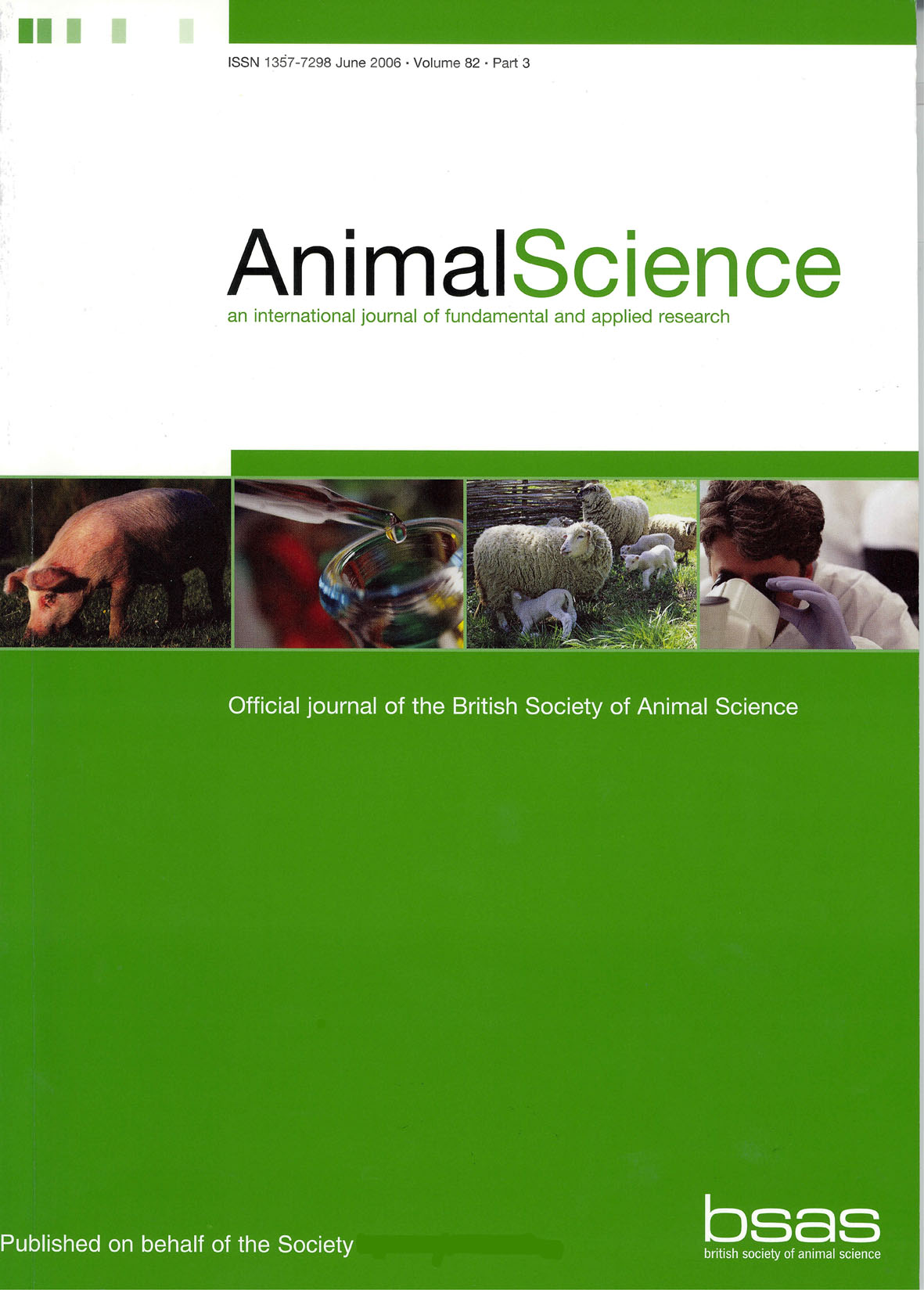Article contents
Design and evaluation of progeny testing in open-nucleus breeding systems
Published online by Cambridge University Press: 02 September 2010
Abstract
When comparing progeny-testing schemes with individual performance selection, one should use equivalent selection intensities and population structures in the two systems. Adapting formulae from open-nucleus theory, the relative efficiency of progeny testing has been tested for a range of heritabilities, fertility levels, upward gene-transfer rates, mating ratios and numbers of sires selected. In sheep and beef cattle breeding, the heritability of the trait under consideration has usually to be very low to make progeny testing worth-while. High fertility increases genetic gains but does not change the relative efficiency of progeny testing. Opening the nucleus to females from the base increases genetic gains and reduces relative efficiency of progeny testing, both effects being of small magnitude. For fixed mating ratios, only a small fraction of females should be in the nucleus, but for fixed sire numbers approximately one-third of the population should be mated to proven sires. In these analyses, variances were adjusted for the effects of repeated selection and for the effects due to mixing groups with different means. This adjustment did reduce absolute genetic gains, but did not change conclusions on progeny testing efficiency and optimum design.
Information
- Type
- Research Article
- Information
- Copyright
- Copyright © British Society of Animal Science 1984
References
REFERENCES
- 2
- Cited by

